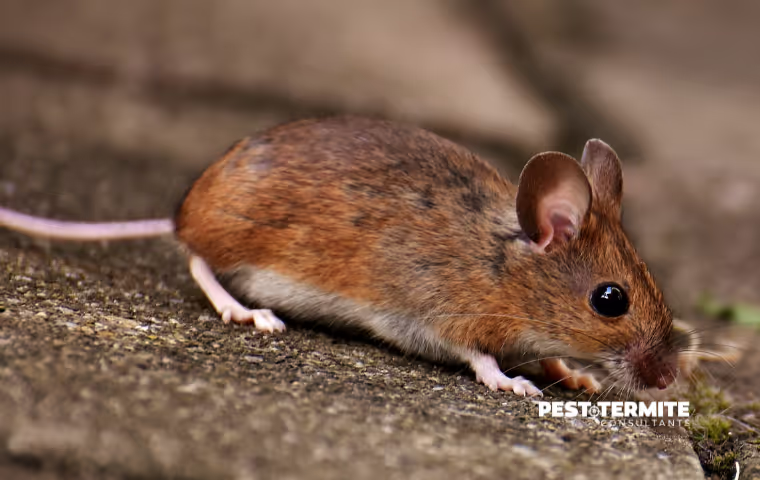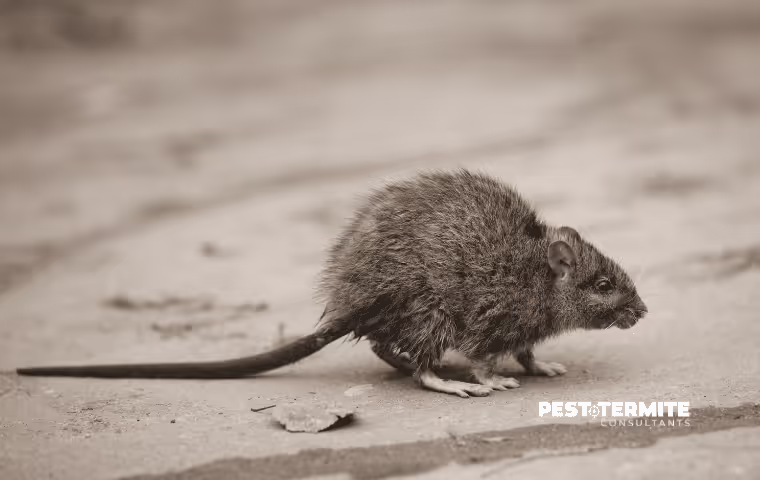Rodent Problems Durham Homeowners Should Watch Closely

Rodents stay active across Durham all year. Shifts in temperature, steady food sources, and thick vegetation make neighborhoods a strong draw for mice and rats. Many homeowners do not notice the early signs until the problem is already established.
You protect your home faster when you understand how rodents behave, where they hide, and what brings them inside.
Call (919) 870-8003 if you want a full inspection or help blocking entry points.
Why Rodents Thrive in Durham Neighborhoods
You live in an area with older construction, wooded surroundings, and regular shifts in humidity. These conditions give rodents exactly what they need.
Key factors that increase activity include:
- Gaps around utility lines
- Crawlspace vents left open or unprotected
- Garages with unsealed door tracks
- Bird feeders placed close to the home
- Pet food stored in garages
- Heavy vegetation pressed against siding
Rodents take advantage of small oversights. Tightening these areas makes a noticeable difference.
Early Signs of Rodent Activity in Your Home
You often notice the clues long before you see an actual mouse or rat.
1. Scratching or Light Movement in Walls
Rodents move at night because the home is quiet. If you hear activity in the walls or attic, it is worth investigating.
2. Droppings Near Food and Storage Areas
Look in pantries, laundry rooms, garages, and under sinks. Droppings are pellet shaped and dark.
3. Chewed Boxes, Wires, or Plastic Containers
Rodents chew to keep their teeth short. Damaged wiring or small bite marks on stored items suggest ongoing movement.
4. Grease Marks on Baseboards
Rats run along the same paths and leave faint dark streaks on walls.
5. Nesting Material in Quiet Areas
Shredded insulation, paper, or fabric placed in corners, behind appliances, or inside storage bins points to nesting.
How Rodents Enter Durham Homes
Rodents squeeze through openings the size of a coin. Common entry points include:
- Gaps where utilities enter the home
- Cracks around crawlspace doors
- Open dryer vents
- Loose weather stripping
- Unsealed garage door edges
A single gap can allow a mouse inside, and once it finds food and shelter, more follow.
How Durham Homeowners Can Reduce Rodent Problems
You lower activity quickly by making your home less inviting.
Seal Entry Points
Use steel wool or approved barrier materials around small gaps. Pay close attention to areas near plumbing and HVAC lines.
Store Food in Tight Containers
Place pantry items, bird seed, and pet food in sealed bins. Avoid leaving bowls out overnight.
Trim Heavy Vegetation
Rodents hide in thick shrubs and overgrown beds. Keep plants away from siding and remove clutter around the foundation.
Keep Garages Clean and Dry
Rodents hide under boxes and bags. Store items off the ground on shelving.
Schedule Routine Inspections
A technician can identify early activity, locate entry points, and create a prevention plan suited for your home.
Why Rodent Activity Increases During Fall and Winter
When temperatures cool, rodents search for heat and steady food. Homes across Durham see increased activity in:
- Attics
- Crawlspaces
- Garages
- Kitchen pantries
Seasonal pressure grows quickly. Taking early action reduces long term problems.
How Pest & Termite Consultants Protect Durham Homes
You get a customized home pest control plan based on what we see in local neighborhoods. Our team identifies attractants, tracks movement, and places control measures where they work best. You also receive clear reporting after each visit and steps you can take between services.
We provide:
- Detailed inspections
- Targeted rodent control
- Entry point sealing recommendations
- Ongoing protection for each season
Call (919) 870-8003 to schedule your rodent inspection.
FAQs
What are the first signs of rodents in a Durham home
Droppings, scratching at night, chew marks, and small nests built from shredded materials.
Are rodents dangerous
Rodents chew wiring and carry bacteria. Early control reduces risks to your home and stored items.
Why do rodents choose older homes
Older construction can have small gaps created from settling, weathering, or previous repairs.
Can one mouse be a sign of more
Yes. Seeing one mouse often means more are nearby because they rarely travel alone.
Do bird feeders attract rodents
Yes. Fallen seed draws rodents close to the home and increases movement around the foundation.
Can rodents live in crawlspaces
Yes. Crawlspaces offer moisture, warmth, and quiet shelter. Routine checks help prevent nesting.
Do traps solve the problem
Traps help, but sealing entry points and removing attractants create long term control.
Why do I only hear noises at night
Rodents are active when the home is quiet and food is easier to access.
How often should I schedule rodent inspections
Most homes benefit from yearly inspections. High activity areas may need seasonal reviews.
Will rodents leave on their own
No. Once they find shelter and food, they stay and often expand their nesting areas.
Protect Your Durham Home With Reliable Rodent Control
Rodents spread quickly when they find food and warmth. Small gaps, cluttered garages, and heavy vegetation all make your home more inviting. When you stay ahead of these conditions, you keep activity outside and protect your living spaces. Pest & Termite Consultants provides the support Durham homeowners need through clear inspections, targeted control, and ongoing protection.
If you are seeing signs of mice or rats or want to stop activity before it grows, call our Durham team at (919) 870-8003 to schedule your service.





